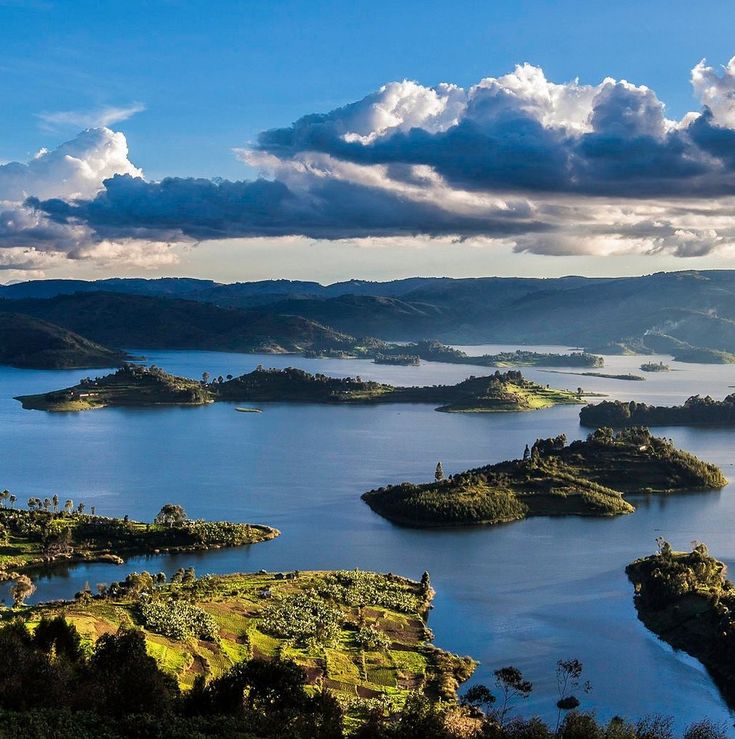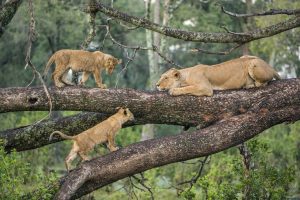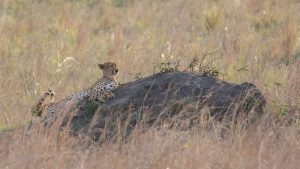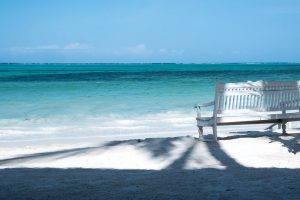Uganda, famously dubbed “The Pearl of Africa” by Winston Churchill, is a country of staggering natural beauty, diverse wildlife, and a vibrant culture. For a first-time traveler, the allure of Uganda is undeniable—from the dense, misty forests that house half the world’s mountain gorillas to the roaring cataracts of the Nile River. My first trip to this remarkable nation was a whirlwind of sensory experiences, a journey that proved to be as humbling as it was exhilarating. This guide is designed to help fellow first-timers navigate the beautiful complexities of Uganda, addressing key questions, offering practical tips, and sharing the unforgettable moments that make this country a must-visit destination. First Time Traveler Uganda Experience
Planning and Preparing for Your Uganda Adventure
A successful trip begins with thorough preparation. For a destination like Uganda, knowing the essentials beforehand can make all the difference, ensuring a smooth and enjoyable experience from start to finish.
What are the visa requirements for Uganda?
All persons intending to travel to Uganda for holiday or business are required to apply for a visa online before they travel. The application is a straightforward electronic process on the official Directorate of Citizenship and Immigration Control website. You’ll need to submit a copy of your passport bio-data page, a recent passport-sized photograph, and a valid Yellow Fever Vaccination Certificate. The cost for a single entry visa is typically around $50 USD. For those also planning to visit Kenya and Rwanda, the East Africa Tourist Visa is an excellent option, allowing multiple entries to all three countries for 90 days. It’s a convenient and cost-effective choice for regional exploration. First Time Traveler Uganda Experience.
What is the best time of year to visit Uganda?
Uganda’s climate is generally temperate, but it experiences two distinct dry seasons (June to August and December to February) and two rainy seasons. The dry seasons are widely considered the best time for gorilla and chimpanzee trekking, as the forest trails are less muddy and the skies are clearer for photography. Game viewing in savannah parks is also excellent during the dry season, as animals congregate around water sources. However, the wet seasons offer their own advantages, including lush, green landscapes and lower prices for accommodation and permits, making it a great option for budget-conscious travelers.
What vaccinations and health precautions should I take before traveling to Uganda?
A Yellow Fever vaccination certificate is mandatory for entry into Uganda. Besides that, it’s highly recommended to consult a travel health professional about other vaccinations, such as Hepatitis A and B, Typhoid, Tetanus, and Polio. Malaria is a risk in all areas of Uganda, so a course of anti-malaria medication is essential, along with taking precautions to avoid mosquito bites, such as using repellent and sleeping under a mosquito net. It’s also wise to bring a small medical kit with basic first-aid supplies and any personal medications you may need. First Time Traveler Uganda Experience.
What should I pack for a trip to Uganda?
Packing for Uganda requires a blend of practicality and comfort. For safaris and trekking, think “layers.” Pack long-sleeved shirts and trousers in neutral colors (khaki, brown, olive green) to deter insects and blend in with the environment. Sturdy, waterproof hiking boots are non-negotiable for forest trekking. A waterproof jacket or poncho is also a must, regardless of the season. Other essentials include a wide-brimmed hat, sunscreen, sunglasses, insect repellent, and a good pair of binoculars. A daypack for daily excursions, a power bank for charging devices, and a UK-style three-pin power adapter (Type G) are also highly useful.
Is it safe to travel to Uganda as a first-time visitor?
Uganda is generally considered a safe and politically stable country. The people are famously friendly and welcoming to tourists. However, as with any country, common-sense precautions are advised. Be aware of your surroundings, especially in crowded urban areas like Kampala, and avoid displaying expensive valuables. While serious crime is rare in tourist areas, petty theft can occur. It’s also important to stay informed about local political situations and avoid any public demonstrations. Tour operators and lodges often have excellent security measures in place to ensure a safe and worry-free stay.
Essential Uganda Experiences for First-Time Visitors
Uganda’s diverse landscapes offer an incredible array of activities, from high-adrenaline adventures to serene wildlife encounters. Deciding what to do can be overwhelming, but these are some of the experiences that make a trip to Uganda truly special.
What is the gorilla trekking experience like in Uganda?
Gorilla trekking is often the highlight of any Ugandan safari. The experience typically begins with an early morning briefing at the Bwindi Impenetrable or Mgahinga Gorilla National Park headquarters. You will be assigned to a specific gorilla family and a team of experienced trackers and guides. The trek itself can be challenging, involving hiking through dense, steep jungle terrain for several hours. But the moment you encounter a gorilla family—a silverback, mothers, and playful young ones—all the effort melts away. The hour you spend in their presence is deeply personal and utterly unforgettable. The gorilla permits are costly, but the funds are crucial for conservation efforts and supporting local communities.
Are there other wildlife experiences in Uganda besides gorilla trekking?
Yes, Uganda is a premier safari destination. While the gorillas get the most attention, the country offers fantastic opportunities for classic game drives. Murchison Falls National Park, Uganda’s largest, is home to a magnificent waterfall where the Nile River is forced through a narrow gorge. Here, you can spot elephants, giraffes, lions, and an abundance of birdlife. Queen Elizabeth National Park is famous for its unique tree-climbing lions in the Ishasha sector and its boat safaris along the Kazinga Channel, where you can see hippos, crocodiles, and buffalos up close. The remote Kidepo Valley National Park in the northeast offers an untouched safari experience with dramatic scenery and diverse wildlife, including cheetahs.
What about chimpanzee trekking in Uganda?
Chimpanzee trekking is another incredible primate experience. Kibale National Park is the “primate capital of the world” and the best place to track chimpanzees. The treks are usually less strenuous than gorilla trekking and offer a different kind of excitement as you follow these intelligent and boisterous primates as they swing through the trees. The “chimpanzee habituation experience” is a special full-day program that allows you to spend more time with the chimpanzees and observe their behaviors.
What cultural experiences can I have in Uganda?
The cultural tapestry of Uganda is rich and diverse. In Kampala, you can explore cultural landmarks like the Buganda Kingdom’s Kasubi Tombs (a UNESCO World Heritage Site) and the vibrant Owino Market. A visit to the Batwa pygmy communities near the gorilla parks offers a glimpse into their ancient hunter-gatherer lifestyle and traditions. For a truly unique experience, consider a homestay or a cultural village tour, where you can learn about local customs, food, and music firsthand.
Where can I find adventure sports in Uganda?
If you’re an adrenaline junkie, Uganda will not disappoint. Jinja, located on the shores of Lake Victoria at the source of the Nile River, is the “adventure capital of East Africa.” Here, you can go white-water rafting on the Nile’s thrilling rapids, bungee jump, quad bike through local villages, or take a peaceful boat ride to the official source of the Nile. It’s the perfect place to mix adventure with natural beauty.
What is the food like in Uganda? What are some local dishes I should try?
Ugandan cuisine is hearty and delicious, with a focus on fresh, local produce. Staple foods include matooke (steamed and mashed green bananas), cassava, sweet potatoes, and maize meal. A popular street food is the rolex, a tasty and filling wrap made of an omelet and vegetables rolled in a chapati. Other must-try dishes include luwombo (stew steamed in banana leaves), groundnut sauce, and posho (a stiff porridge made from maize flour). Don’t forget to sample the delicious tropical fruits and the famous local beer, Nile Special.
Practical Tips and Personal Reflections
Navigating the day-to-day logistics of a trip can be just as important as the grand experiences.
How easy is it to get around Uganda? What are the transportation options?
For tourists, the most convenient way to travel is by hiring a private car and driver. This offers flexibility and a knowledgeable guide for the long drives between national parks. In cities like Kampala, motorcycle taxis (boda-bodas) are a fast way to get around, but safety can be a concern. Shared taxis (matatus) and long-distance buses are a more budget-friendly option, but they can be crowded and less comfortable.
What is the accommodation like in Uganda? Are there options for different budgets?
Uganda offers a wide range of accommodation to suit every budget. In and around the national parks, you’ll find everything from basic campsites to stunning luxury eco-lodges. In cities, there are international-brand hotels, mid-range guesthouses, and budget-friendly hostels. It’s highly recommended to book accommodation in advance, especially during the peak tourist seasons.
What is the local currency in Uganda, and how can I exchange money?
The local currency is the Ugandan Shilling (UGX). While US Dollars are widely accepted, especially for tourism-related services and permits, it’s essential to carry some shillings for smaller purchases like souvenirs and local food. When exchanging money, bring US Dollar bills that are in good condition and printed after 2003, as older or damaged bills may be rejected. First Time Traveler Uganda Experience.
Are credit cards widely accepted in Uganda?
In larger hotels, restaurants, and tour companies in major cities, credit cards (especially Visa) are accepted, but you should be aware of potential surcharges (3-5%). However, for most day-to-day transactions in markets and small towns, cash is king. ATMs are available in larger towns and cities, but it’s best to inform your bank about your travel plans to avoid any card freezes. First Time Traveler Uganda Experience.
How can I interact respectfully with the local people in Uganda?
Ugandans are renowned for their friendliness. A simple greeting like “Hello” or “How are you?” is a great way to start a conversation. It’s polite to use your right hand when shaking hands or exchanging items. Dress modestly, especially in rural areas and religious sites. Asking for permission before takiFirst Time Traveler Uganda Experience.ng someone’s photograph is a sign of respect and often leads to a warmer interaction.
Recommend Uganda
Uganda offers an unparalleled blend of adventure, wildlife, and culture. It’s a destination that satisfies the soul of the safari enthusiast, the adrenaline junkie, and the curious traveler alike. For anyone seeking a truly authentic and deeply moving African experience, Uganda is the perfect choice. It is a country that will not only meet your expectations but will undoubtedly exceed them.




